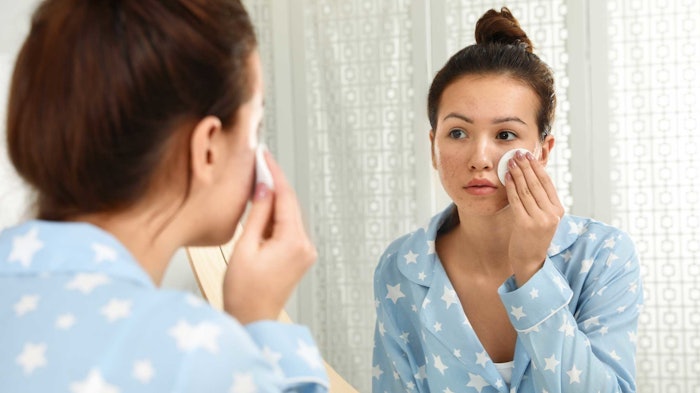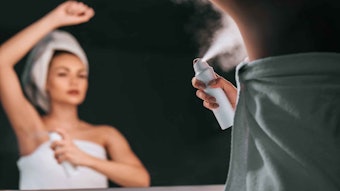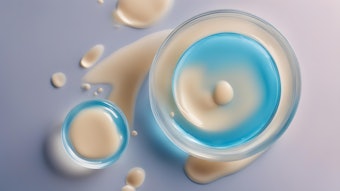
Benzene-contaminated skin care is making headlines again. A new study published in the Journal of Investigative Dermatology, co-authored by experts at Valisure, LLC, Yale University School of Medicine and Long Island University, found that of 111 benzoyl peroxide (BPO)-containing products taken off retail shelves and sampled at room temperature, 38 (34%) exceeded the U.S. Food and Drug Administration's (FDA's) conditional benzene limit. The products included brands such as Clearasil, CVS Health, La Roche-Posay, Proactiv and others. Additional observations suggest that: most likely, the benzene formed within the products; high temperatures and UV exposure may have promoted this formation; and longer exposure to given conditions could have increased the benzene content. These results follow similar findings reported earlier this year.
Log in to view the full article
Benzene-contaminated skin care is making headlines again. A new study published in the Journal of Investigative Dermatology, co-authored by experts at Valisure, LLC, Yale University School of Medicine and Long Island University, found that of 111 benzoyl peroxide (BPO)-containing products taken off retail shelves and sampled at room temperature, 38 (34%) exceeded the U.S. Food and Drug Administration's (FDA's) conditional benzene limit. The products included brands such as Clearasil, CVS Health, La Roche-Posay, Proactiv and others. Additional observations suggest that: most likely, the benzene formed within the products; high temperatures and UV exposure may have promoted this formation; and longer exposure to given conditions could have increased the benzene content. These results follow similar findings reported earlier this year.
Benzene in BPO Acne, Rosacea Products
The known carcinogen benzene was previously identified by the firm Valisure in acne and rosacea treatments containing benzoyl peroxide (BPO). It presence was attributed to the degradation of BPO due to exposure to elevated temperatures. To the earlier reports, the PCPC responded, "... The findings in the most recent Valisure petition are based on unproven, questionable methods applying unrealistic conditions which are inconsistent with the way the product would be stored normally."
Boomberg reported that since the lab’s earlier study received pushback for testing products at high temperatures, in a follow up study, researchers kept products at room temperature. The source noted that "unlike the initial analysis, this study was [additionally] peer-reviewed, giving it another level of rigor."
In the new study, experts from Valisure, Yale and Long Island University tested 111 BPO-containing drug products sampled from the shelves of major retailers in six distinct U.S. regions. Products were assessed at room temperature shortly after being required. Results showed:
- the presence of benzene at levels ranging from 0.16 ppm to 35.30 ppm, as detected by GC-MS;
- of the 111 products, 38 (34%) contained levels above the conditionally restricted FDA limit of 2 ppm; and
- these included brands such as Clearasil, CVS Health, La Roche-Posay and Proactiv, among others (see the article's Supplementary Material for details).
Benzene Build Up in Expired Product
Potential Benzene Encapsulation Failure
A prescription-strength product containing encapsulated BPO was also stability tested at cold (2°C) and elevated temperatures (50°C). No benzene was detected at 2°C whereas high levels formed at 50°C, which per the authors, suggested the encapsulation technology failed to stabilize BPO at higher temperatures, and that cold storage may reduce benzene formation. (See the full details in the open access article.)
Possible UV-induced Benzene Formation
Furthermore, within the same study, in a face model experiment, a BPO drug product was applied to polymethylmethacrylate (PMMA) plates and exposed to UV levels below those of "peak sunlight." Benzene was detected in the surrounding air by SIFT-MS, showing the presence of benzene through evaporation and substantial benzene formation upon exposure to UV at levels below peak sunlight.
Conclusions
Per the authors, the results suggest that benzene formation is likely the strongest contributor to its presence in products. In addition, UV exposure at moderate levels may generate more benzene than elevated temperatures. Since notable differences were detected in heat-induced benzene formation, this warrants further investigation. Also, considering the expired product results, it may be possible that longer exposure to given conditions could increase benzene production; additional data is required.
Taken together, the authors concluded, "[The] results suggest that potential benzene exposure from formation during BPO drug product use poses significant risks independent of the starting benzene concentration."
PCPC Weighs In
Update: Tesia Williams, executive vice president of public affairs and communications for the Personal Care Products Council (PCPC), weighed in with the following statement regarding these findings:
The Personal Care Products Council (PCPC) and our member companies are firmly committed to ensuring consumers have access to cosmetics and personal care products with ingredients that have been thoroughly tested for quality, efficacy and safety, and follow all legal and regulatory requirements. There is nothing more important than safety. If our consumers can’t trust the safety of our products, then nothing else matters.
Over-the-counter (OTC) drug products such as anti-acne treatments are highly regulated by the U.S. Food & Drug Administration (FDA), which has reviewed and determined benzoyl peroxide is a safe and effective anti-acne ingredient. Consumers have safely used anti-acne products for decades.
The findings in Valisure’s latest study are based on unproven, questionable testing methods applying unrealistic conditions that are inconsistent with the way the products would be stored normally. In a December 2022 letter, the FDA highlighted multiple deficiencies in Valisure’s analytical methods, stating that the lab should follow the same testing methods that drug manufacturers are required to use. Unfortunately, Valisure has yet to adhere to the FDA’s guidance and is continuing to publish studies based on questionable testing methods.
C&T has reached out to Valisure for comment.










